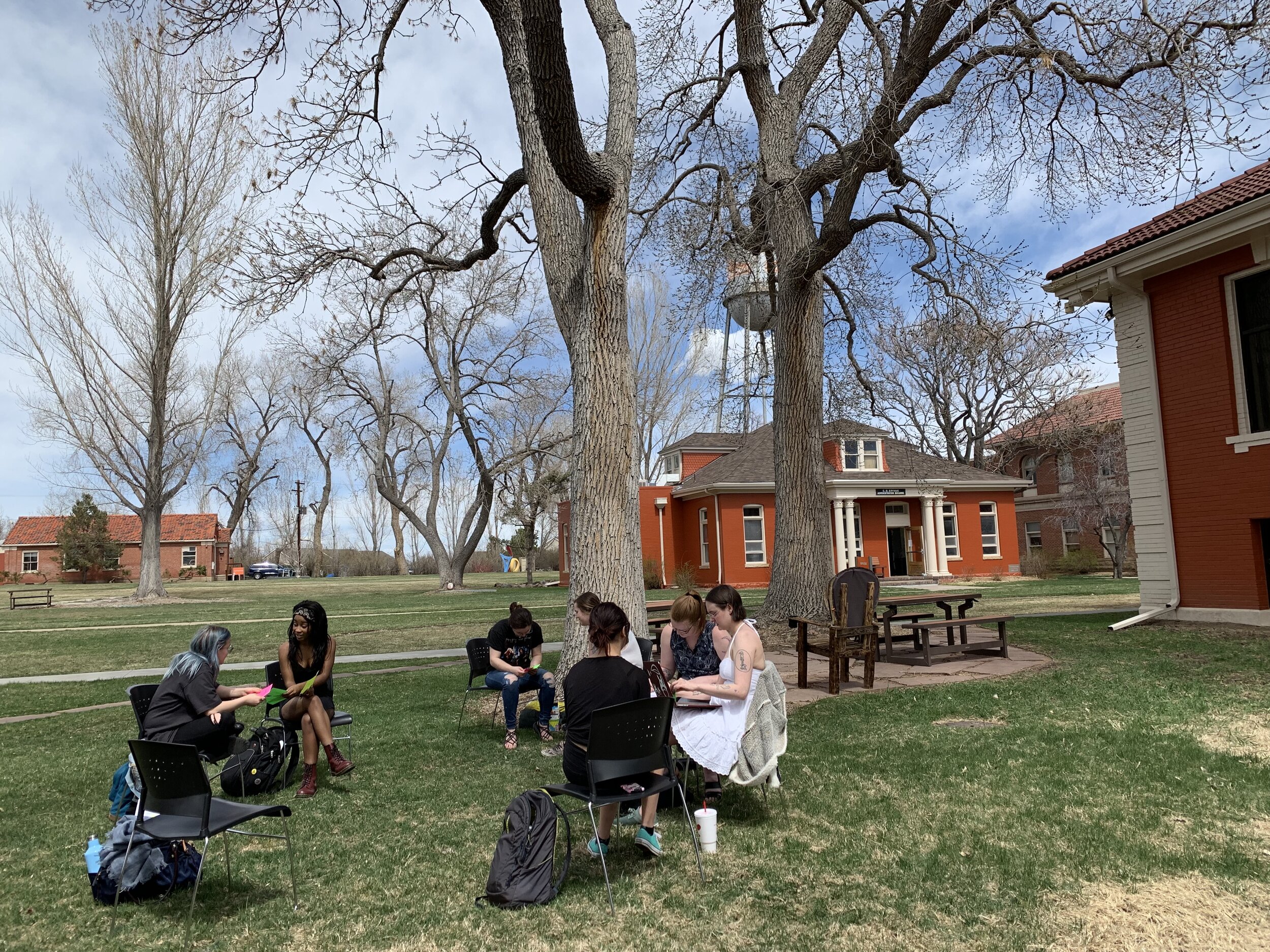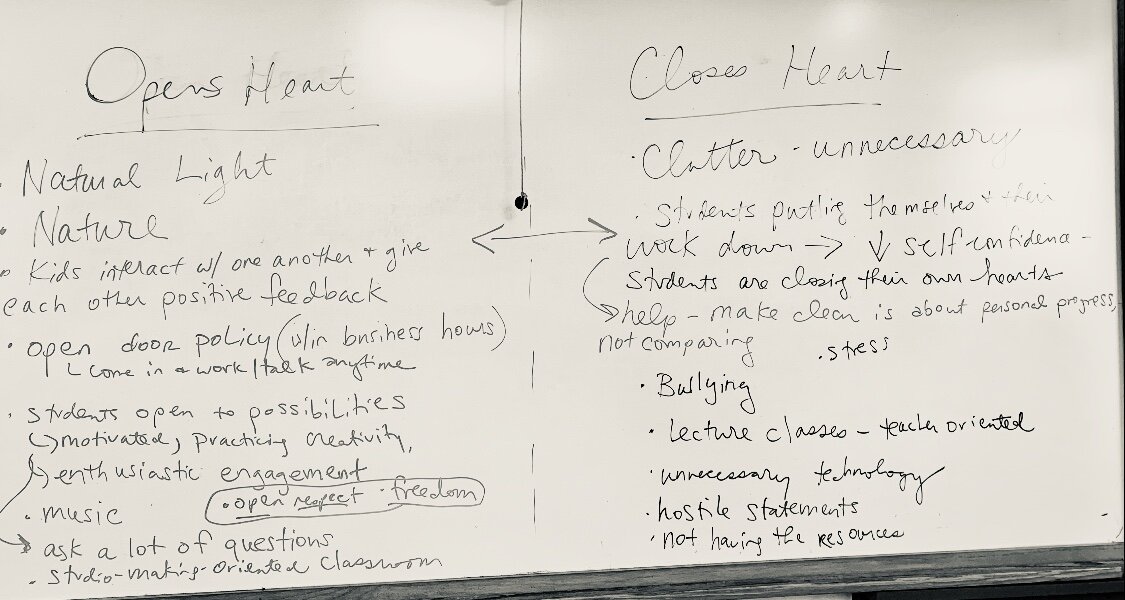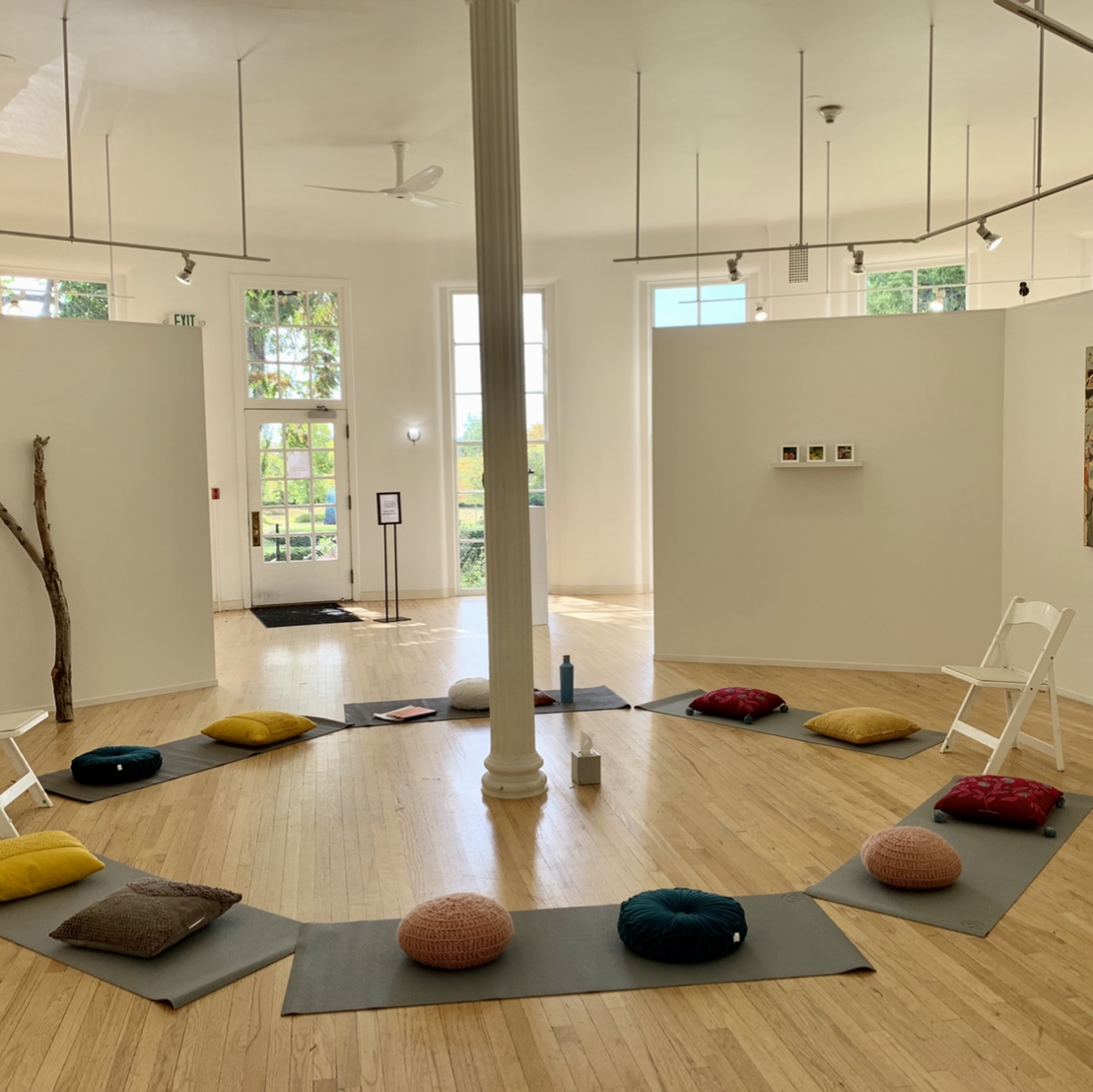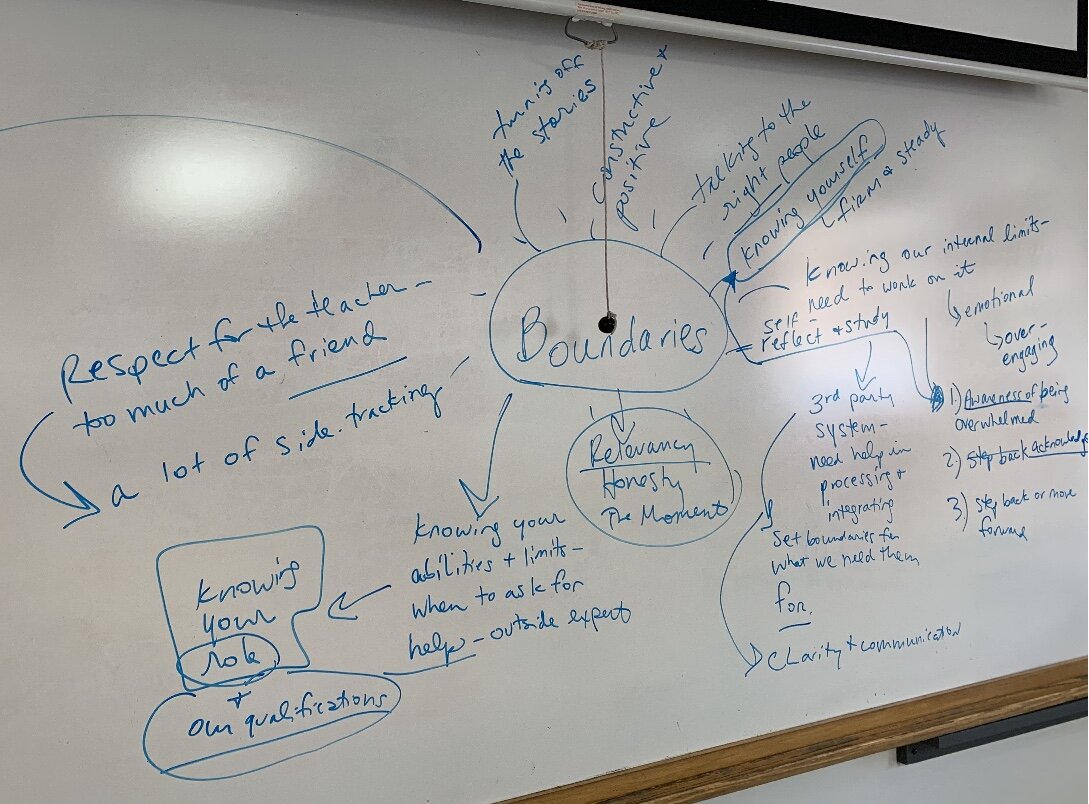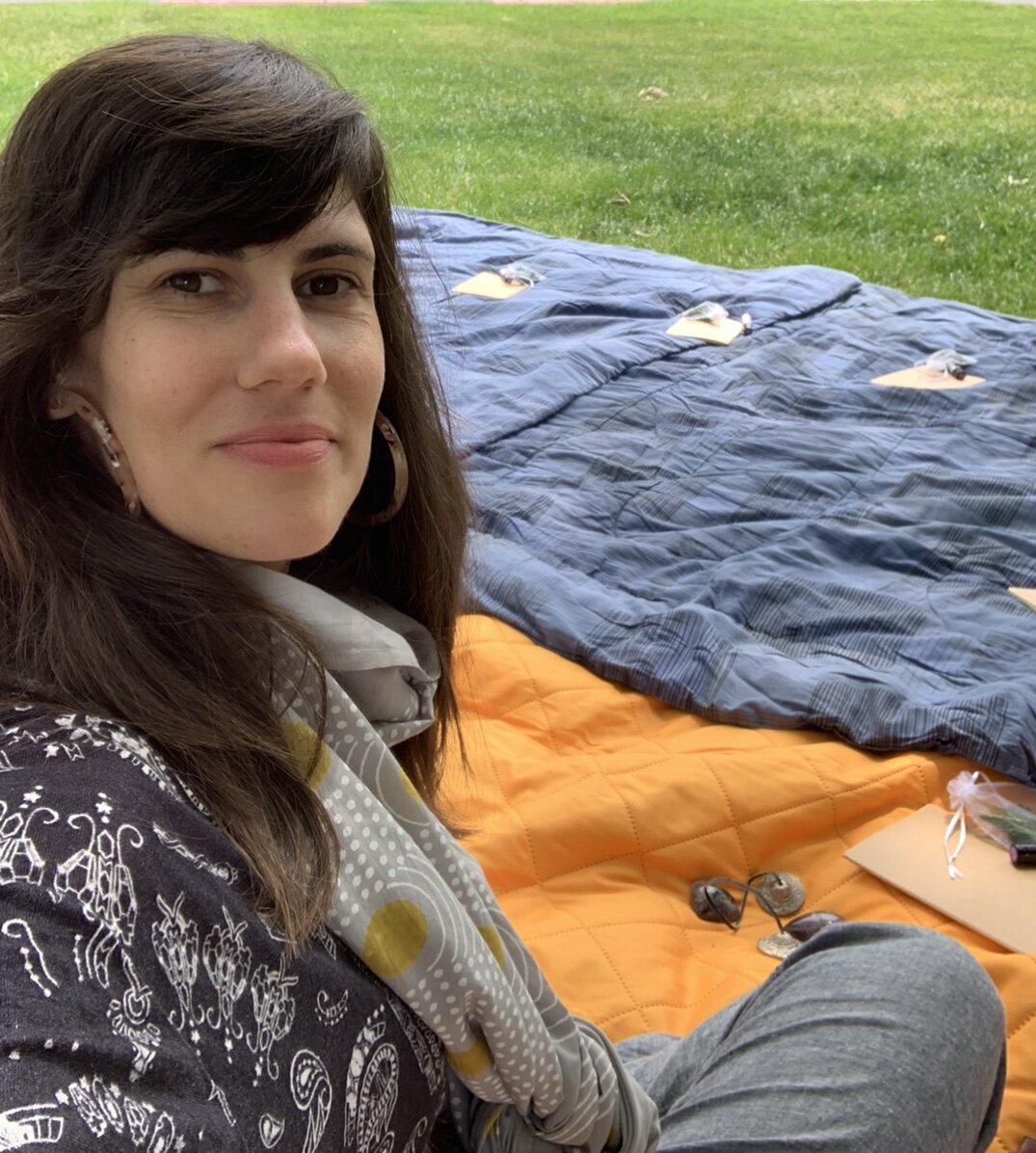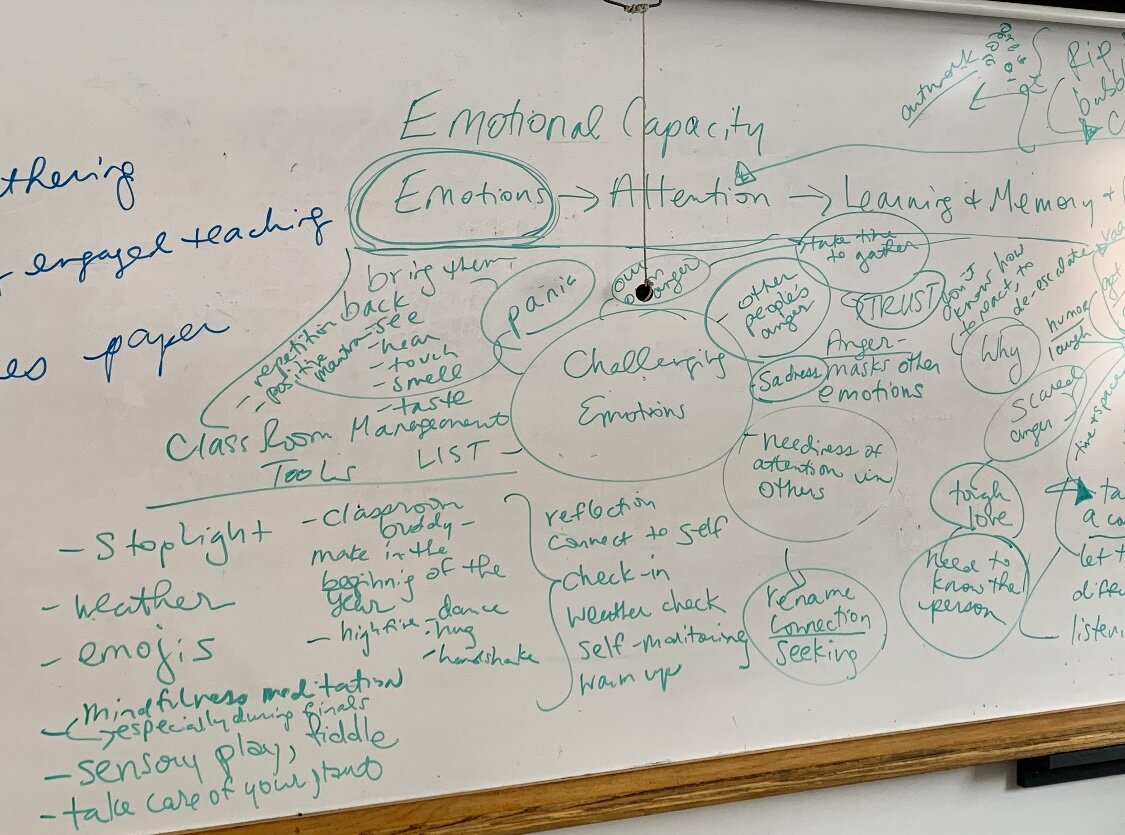MINDFUL PEDAGOGY
Teaching outdoors at Rocky Mountain College of Art + Design, Lakewood, CO
Mindful Pedagogy supports students, teachers and administration (PreK-12, Higher Education, and Adult Education) in creating inclusive, positive, holistic, and productive learning environments that support well-being and growth and for all.
Teachers and staff need to learn and practice mindfulness before they can sustainably and meaningfully practice mindfulness with students. Mindfulness increases motivation, energy, positivity and creativity, for the entire teaching and learning community.
Teachers and staff also need mindfulness in their daily lives to continually and positively engage with students. Mindfulness practices alleviate stress, stabilize emotions, energize the mind, and combat burnout.
Students, teachers and staff all have personal lives and emotions that they bring to school and class each day. Both teachers and students need tools for self-awareness, emotional awareness, and social emotional competencies in order to create a classroom environment that feels inclusive, equitable, safe, positive, constructive and engaging.
Mindfulness is key to learning as well. Cultivating mindful thinking practices is the foundation for inclusive and equitable teaching, as well as the fostering of critical thinking and creativity.
I have designed a Mindful Pedagogy program that can be tailored to your school, district, students, and teachers. It is based on my experiences and learnings as an educator, student, and practitioner of wellness modalities such as mindfulness, meditation and yoga.
Mindful Pedagogy is supportive of parents and families and well. As a mother, I integrate the Keys of Mindful Pedagogy into everything I do for myself, my children and our family.
Read my article: Mindful Pedagogy: The 7 Keys
Email me to start the conversation about Mindful Pedagogy for your school or family.
Why Mindfulness? Because:
Mindful Students/Children*
are better able to focus and concentrate
experience increased calm
experience decreased stress and anxiety
experience improved impulse control
have increased self-awareness
find skillful ways to respond to difficult emotions
are empathetic and understanding of others
have natural conflict resolution skills
Mindful Teachers/Administration/Parents**
have an awareness of themselves and are attuned to their students
are responsive to students’ needs
maintain emotional balance
nurture a learning community where students flourish academically, emotionally, and socially
thrive professionally and personally
know how to manage and reduce stress
have healthy relationships at work and at home
learn how to lead with thoughtfulness and empathy
Mindful Pedagogy Includes:
Creating space and time to intentionally connect with ourselves, each other, the task at hand, and the present moment.
Self-awareness and self-reflection in terms of emotions, thoughts, approaches, work produced, interactions, behaviors, tone and word choices.
Taking the time to listen and observe without assumption or judgment.
Teaching, learning, and working with clarity, purpose, and meaning.
Making choices that encourage connection, growth, creativity, and curiosity.
Making choices that promote the opening and engaging of the mind instead of the narrowing and closing of the mind.
Cultivating and being open to multiple and diverse perspectives, approaches, and ways of thinking and doing.
Noticing potential and possibilities (rather than problems), and then taking steps to investigate, experiment, question, and create.
Approaching tasks and challenges with a sense of play, presence, and wonder.
Asking relevant and generative questions.
Finding and creating meaningful and welcoming relationships.
Regularly and consistently taking time for integration, reflection, revision and improvement.
“Mindfulness is more than pausing and breathing. Mindfulness is a purposeful, playful, and integrated approach to living, working and being. It is noticing and questioning.
Mindfulness is making the choice, moment-to-moment, to be awake, curious and engaged without negativity or judgment.
Mindfulness is a pathway to positivity and productivity. ”
References and Resources:
*Testimonials from “Teachers and Students Who Have Received Mindful Schools Instruction.” Mindful Schools: Using Mindfulness to Teach Children to Be Emotionally Aware, Empathetic, and Mindful of Their Thoughts and Actions. 09 Aug 2010. www.mindfulschools.org
** From Mindful Teaching and Teaching Mindfulness, by Deborah Schoeberlein (Somerville, MA: Wisdom Publications, 2009).
https://www.helpguide.org/harvard/benefits-of-mindfulness.htm
https://www.mindfulschools.org/about-mindfulness/research-on-mindfulness/
https://www.helpguide.org/harvard/benefits-of-mindfulness.htm
https://eocinstitute.org/meditation/benefits-of-meditation-for-creativity/,
https://stanfordhealthcare.org/events/scim-mindfulness-meditation.html,
http://www.contemplativemind.org/admin/wp-content/uploads/2012/09/MedandHigherEd.pdf
https://www.researchgate.net/publication/271904180_The_positive_effects_of_mindfulness_on_self-esteem, https://www.mindfulschools.org/about-mindfulness/research-on-mindfulness/
https://www.mindfulnessstudies.com/mindfulness/
http://langermindfulnessinstitute.com/
https://mindfuleducators.mindful.org/
https://www.mindfulnesscds.com/
https://www.mindful.org/
